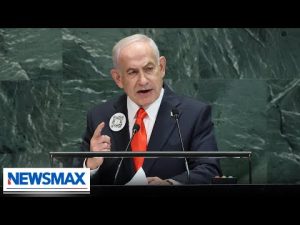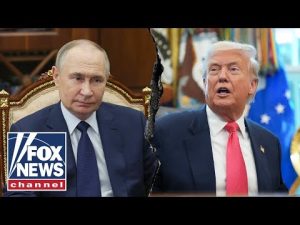In the complex landscape of international politics, the relationship between the United States and India has become increasingly pivotal. The ongoing conflict in Ukraine has forced countries to reevaluate their alliances and economic strategies. Concerns are rising about India’s recent decision to purchase Russian oil, a significant shift from its previous stance. This move has sparked debate among conservative circles, emphasizing the need for a strong U.S.-Indian partnership while also raising questions about India’s commitments to global freedom and democracy.
Many within the conservative movement are frustrated with India’s actions, viewing them as a betrayal of shared values and alliances. India’s decision to buy Russian oil—primarily motivated by the potential for profit—reflects a troubling willingness to align with adversaries and undermine the collective response to Russian aggression. Conservatives point out that this relationship not only jeopardizes the fight for freedom in Europe but also highlights India’s complicated connections with other nations, including China. Buying oil from Russia while Russian troops invade Ukraine sends a mixed message about India’s position in the world.
Furthermore, there is a fear that India’s growing economic ties with Russia could ultimately tip the balance in favor of BRICS nations, allowing them to gain influence over global trade and politics. As conservatives, there is a pressing need to encourage India to prioritize U.S. partnerships over questionable alliances with countries that challenge democracy and freedom. The U.S.-India relationship should be based on mutual respect and shared goals, but this relationship can only thrive if India chooses to distance itself from its dangerous collaborations.
Opposition to China’s rise is another critical aspect that underscores the urgency of a robust U.S.-India alliance. As China continues to expand its reach and influence, solidifying bonds with India becomes essential to counterbalance this power. However, India’s actions create uncertainty in this regard. If India continues to engage economically with Russia, it risks alienating the U.S. and jeopardizing its own security. The message is clear: India must choose between a future aligned with democratic values and one that could ensnare them in dangerous global machinations.
Although there are positive signs of diplomacy, such as expressions of goodwill from Indian Prime Minister Modi towards the Biden administration, action speaks louder than words. Conservatives are watching carefully to see how India navigates this critical juncture. The hope remains that India will recognize the opportunity to strengthen ties with the United States, committing firmly to promoting freedom, combating aggressive authoritarianism, and rejecting the temptation to rely on adversaries like Russia and China. The onus is on India’s leaders and people to steer their nation towards a path that reflects shared values, ultimately benefiting both countries and the democratic world at large.







